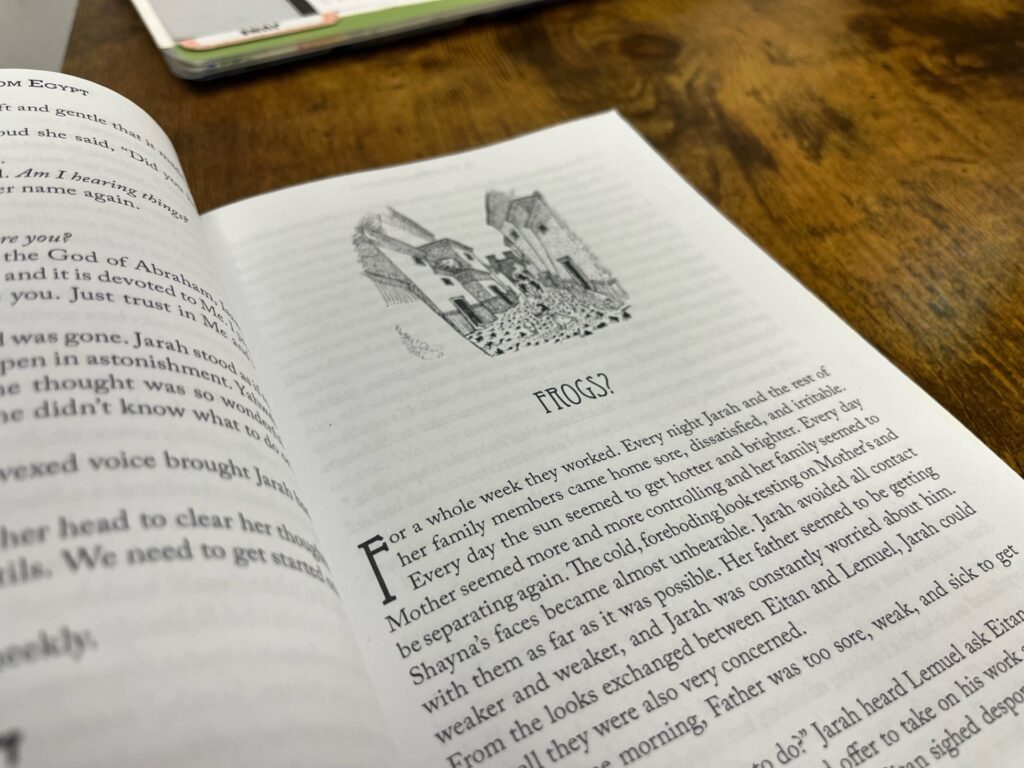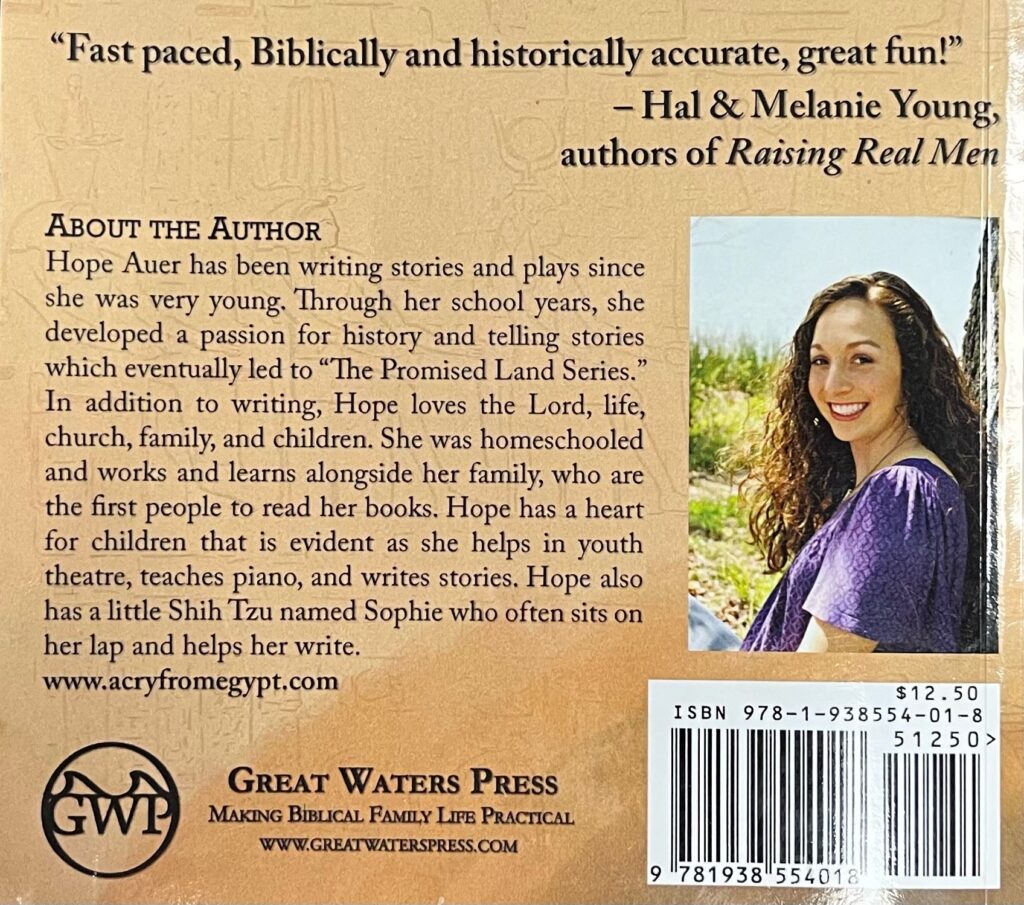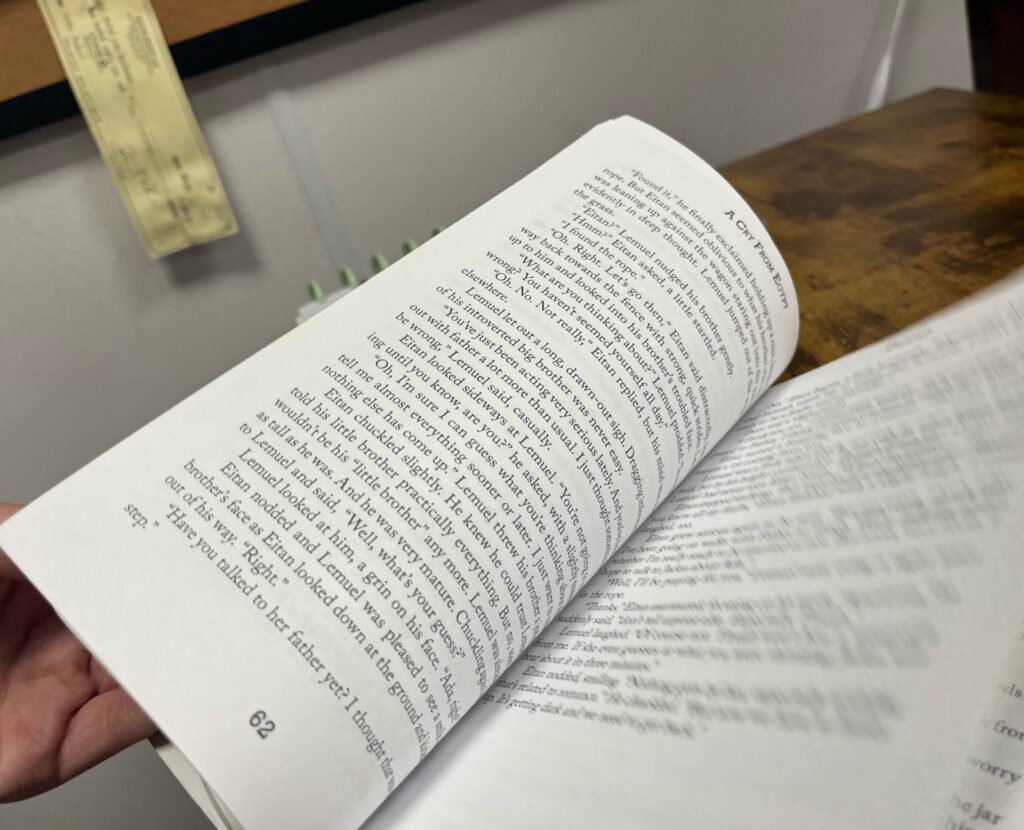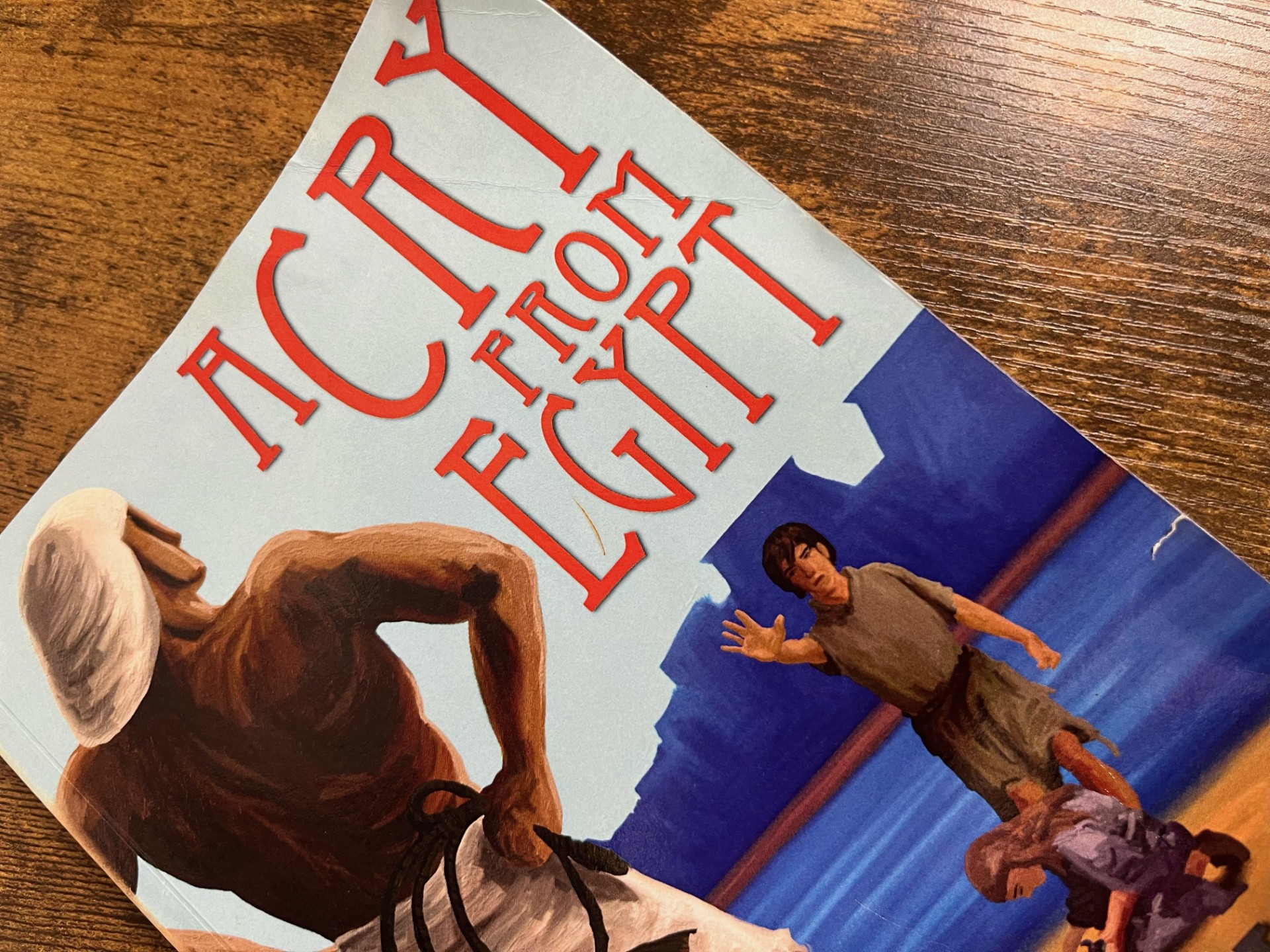I have always been a fan of “underdog” stories. Books about poor orphans with incredibly sunny personalities or abandoned children who grow up to be the world’s tycoons. Every good story, it seems, focuses on the oppressed minorities, the people who get pushed into the cracks. Now, if we took this general concept and combined it with a monumental event in the Bible that has shaped all of history, that would make a pretty good story, don’t you think? And that is exactly what A Cry From Egypt does. It takes the story of the Israelites Exodus from Egypt and makes it a compelling story centered around a young Israelite girl.
Summary
The story centers around Jarah, a twelve-year-old Israelite slave living in Egypt with her family. Her mother worships the Egyptian gods, whereas her father is a dedicated follower of Yahweh. This brings a lot of strife and division amongst her family as her many siblings have to decide what they believe and who they agree with. When Moses comes to try to get the Pharoah to free the Israelites, her family suffers greatly as their work doubles as punishment.
Jarah is amazed as each of the horrible plagues is unleashed on Egypt. She experiences the relief of a break in work because of the plagues and the great suffering afterward that comes from the Egyptian’s unhappiness. She listens as everyone wrestles with the question of who is truly behind these plagues: Yahweh or the Egyptian gods. She wonders constantly as their suffering increases if they will ever be free.

Along the way, we hear the story of Jarah’s older brother Eitan. He is a dedicated follower of Yahweh and is in love with an Israelite girl who works at the palace. He feels called to marry her, but the queen will not allow her to marry someone who does not live in the palace, which Eitan does not. This is a treacherous emotional ordeal, and as the plagues worsen, the couple becomes more worried for each other. This adds greatly to our understanding of the Israelite’s joy when they are finally let free at the end of the book. We are singing Miriam’s song with them as they leave their hardship behind them.
Some Shockers
There were a few things that stuck out to me. These were truths that I had not thought about, and they enhanced the effect of the story on me. First, it is well described how each plague was an attack on an Egyptian god. Each time the mother hears of one, she responds with desperate tears and sorrow as in her eyes her beloved gods are being attacked. Frogs, cattle, flies, and locusts are all sacred animals to the Egyptians. The Nile is sacred to them as well. The gods/ goddesses of healing and light, very important to them, are directly attacked. And finally, their firstborns are taken.

Another extremely eye-opening thing to me was how the Israelites responded to the Egyptians. It was usually with sympathy and pity. They saw the Egyptians as blind men leading themselves to their doom. Many of the Egyptians had no power over the Pharaoh and his choices. The queen and the Pharoah’s eldest son himself believed that they should let the Israelites go. These people watched powerlessly as their kingdom was utterly destroyed because of their stubborn leader. And all they had to turn to were cruel, cold gods who did not have love or care for them. It was no wonder some of them took it out on the Israelites, who seemed to be behind their troubles.
The final thing that fascinated me was the fact that not all the Israelites worshipped Yahweh. Jarah’s own family is divided by the gods they worship. Many of the Israelites express an uncertainty at best about Yahweh’s existence. Their years of slavery have numbed them to Him and He seems like a fairy tale. This is a very real possibility that I had not put much thought into. It gave me a lot of understanding of the worship of the golden calf that happened later in the book.
The Fiction Side
Hope Auer is very open about the work she did to try to make the book historically and Biblically accurate. She includes what her research found at the end so that we all can learn along with her. She explains that many of the historical records and accounts she found from that time period were contradicting or not entirely accurate. She assures us she did the best she could to put together the accounts into an accurate narrative.
But naturally, the actual main story is fiction. It is an excellent storyline and something that even younger readers can enjoy safely. The main character, Jarah, endures a lot of mistreatment. The overseers and Egyptians are incredibly cruel to her and her family. She is constantly in danger of being whipped or hit. The people look down on her and treat her like dirt. In her own family as well there is suffering. Her mother is low in spirits and can be cold and strict with her. She has many siblings, and one chooses to boss her around and be rude to her constantly.

Despite the heavy workload placed on her as a slave, and the many chores she has to complete for her family as well, Jarah grows in her faith immensely during the book. We get to watch her start to ask questions and examine herself. Faced with the influence of both Yahweh and the pagan gods, she does more exploring into what she believes and why than many of us have done. It is a beautiful and delightful picture, even if it is fictional.
A Cry From Egypt truly deepened my perspective of the story of the Exodus. It gave me an added respect for what God has done for us and a deeper understanding of some of the Israelites behavior patterns. It really grew me and deepened a story I felt very familiar with. And it was a short, easy read, so very worth it. It is so great what our God has done for us, and worshipping Him through story is an utter delight.
